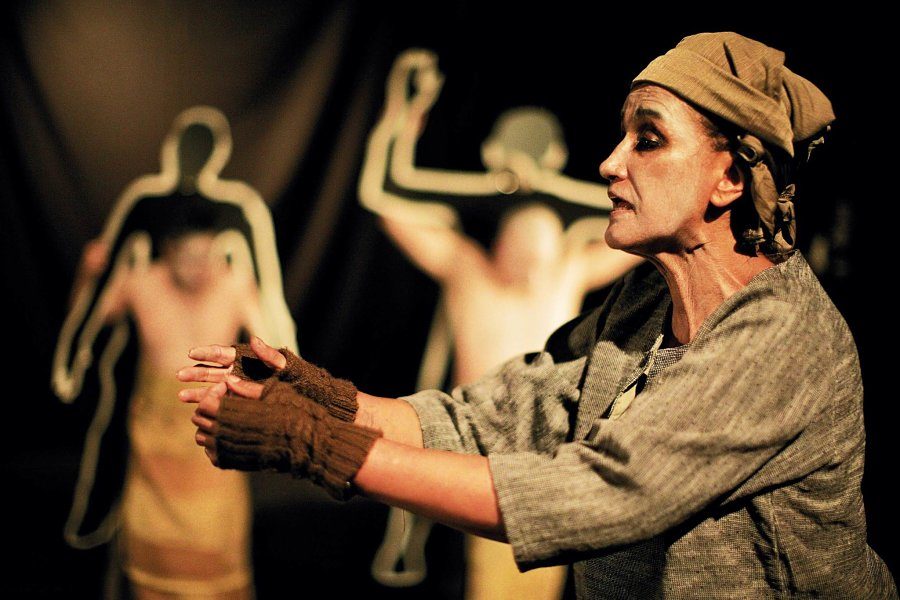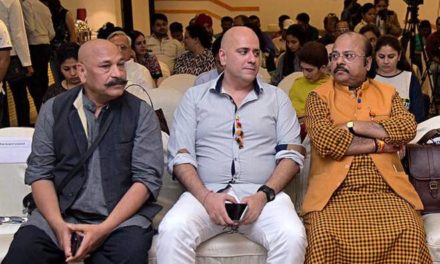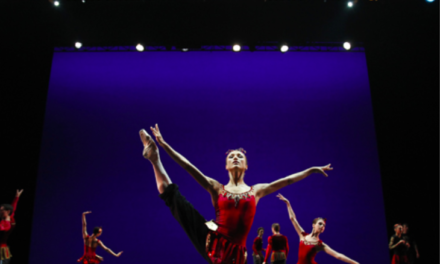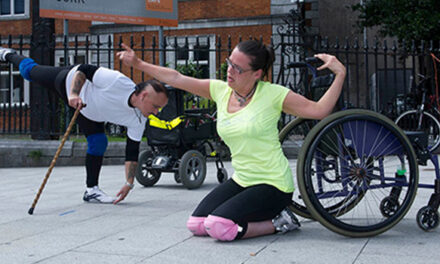Colombian playwright, director, producer, dramaturg and actor, Patricia Ariza receives the 2014 Gilder/Coigney International Theatre Award from the League of Professional Theatre Women. Below is an exclusive TheTheatreTimes.com interview with Patricia, translated from the Spanish, conducted just before she flew to New York for the awards ceremony.
What ‘s your first memory related to theatre?
I remember when I was studying for my degree and I decided to join Santiago García’s proposal of a new independent theatre. I dropped out of college. That was back in 1966, and I’m still at that theatre. I am that theatre.
Please tell us a childhood story that helps us understand who you are as an artist.
It was really touching seeing my father play the mandolin, and my sporty eldest brother runs beyond exhaustion, but the most shocking thing was seeing my mum take risks. She was able to do the impossible.
When and at what age did you realize you wanted to pursue this path?
I left home at 16 and joined a group of poets and anarchists forming a new movement. It was called Nadaism. With them, I knew my thing was created.
At the beginning of your career, how did your parents explain to their friends what you were doing?
They told it as something dangerous, sinful. They were afraid.
What’s the trigger to make you want to write a play? Is it often a topic, a character, a memory, an image?
I work in an emblematic group which is LA CANDELARIA Theatre, but I’ve also been building my own room. I’ve created many pieces with the excluded, the women’s movement, and politic actions from the performances. Many times it comes from a topic. Nevertheless, currently in LA CANDELARIA we’re working on the figure of a rebel priest named Camilo Torres. At the same time, I work on the top of art and culture for peace.
Who’s been the most influential figure in your career and why?
There have been several in different periods. Starting with Santiago García, founder of LA CANDELARIA; he’s been a great drama master in Colombia. Besides, he was my partner and father of my daughter. The other figure is Emily Dickinson; I’m passionate about her poetry. And Jahel Quiroga, a woman who decided to carry with the defense of the survivors and victims of a genocide against the patriotic union, a political movement of which I’m a survivor. She’s spent 20 years on that and I work with her performing shows about the Historical Memory. Another very influent figure on me is Carlos Satizabal, my partner, with whom I can talk about philosophy. And, of course, the feminists, among them a special one who writes on myths called Cecilia Vélez, and lives in a different city but helps me out of convoluted thoughts.
Which play, by a different author you would like to have written?
One by Violeta Luna, who writes with her body.
What’s your advice for someone who is starting their career in drama in Colombia?
To create their own plays, reinventing theatre is the possibility for us, women and the excluded, to fit in it.
What are the main obstacles you find for your plays to be produced or performed?
Economical. But we’ve learned how to solve those, though. Being excluded because your feminist or rebel is worse.
As a spectator, what kind of theatre do you enjoy the most?
That one in which I find out the truth in the look of actors and actresses. When I see they feel what they do is essential for them and the audience. But, most of all, in which there’s also beauty. Truth and beauty don’t always go hand in hand.
How has the role of drama in Colombian society changed throughout your life?
It has changed. We have changed. At first, we used to overrate the topic, the content. Then we worked aesthetics and the body and now we’re involving auto reference. I mean, we’re broadening the encyclopedia. Also, my plays have changed a lot. Now, for instance, I use women victims with actresses and systematically devoted singers. The challenge is for all of them to fit within the same aesthetic.
If you could institute a theatrical law, what would it be?
Theatres and groups in every school. And, of course, support for the creation of groups where actors and actresses can stay in time researching and introducing themselves. Where original creation of plays, methods, and theories is encouraged.
With whom are you interested in making Permutas de Saberes at this stage of your career?
I interchange with victims and young hip hop girls, student movements, but, at the same time, with the great masters of the Magdalena Project – a movement of women extremely devoted to theatre. I interchange with the political left politicians −this is the most difficult one, because I give a lot. And what I ask for is for them to be persuaded the way for Latin America and the whole world is in creation. And art is a paradigm of creation.
You say, to make drama, the artist or creator must have a philosophical system to hold their art. Could you briefly expose what’s yours?
I think reflecting on your own practice is essential; otherwise, you become fickle between methods or even goods. Thinking is an ethical must for an artist, even more in current times. Philosophical constructions on which the predatory model is based have failed, patriarchy is falling down and for the new world we need a new thinking, a new involving art. For this, it is compulsory to philosophize and poeticise the world. We’re still full with the old order. My system involves believing we throw into disarray an order and at the same time, we make a play.
As you said on many occasions, making theatre is necessary for you. What would have to happen for that necessity to be fulfilled?
To have a little more time. Sometimes life is too demanding as we have to do every kind of stuff. Create the play, produce it, promote it… sometimes it is too much, I don’t get tired but depressed sometimes.
There are two statements we would like you to develop for our readers:
- Politics searches agreement and art seeks for the unique.
Art is not necessarily disagreement but works on the particular and it does, when it doesn’t imitate, from the unique. That’s why it can dig into feelings. And when it’s sincere it may even contribute to transforming the audience’s perception.
- Armed conflict hides social conflict.
Armed conflict was born in this country due to the elite’s incapability of solving the social conflict. Many of these people are civic leaders, not insurgents. Luckily, we’re in a peace process now. I work on that process from a culture without unrelentingly. And, of course, once the agreements are subscribed, social conflicts, which are a lot, will appear in its true dimension. One of them involves recognizing that the conflict is also cultural. There’s a huge sector of politicians and people who believe the solutions rely not on politics but in militarism. And very likely, it’ll take years to the country to dismiss that idea and build a new one which allows political opposition to exist without dying for it.
As an artist, what’s your greatest challenge?
To keep a balance between belonging in a group and being a feminist, between being a political activist and a poet. And to have my own room.
This post was written by the author in their personal capacity.The opinions expressed in this article are the author’s own and do not reflect the view of The Theatre Times, their staff or collaborators.
This post was written by Beatriz Cabur.
The views expressed here belong to the author and do not necessarily reflect our views and opinions.


















